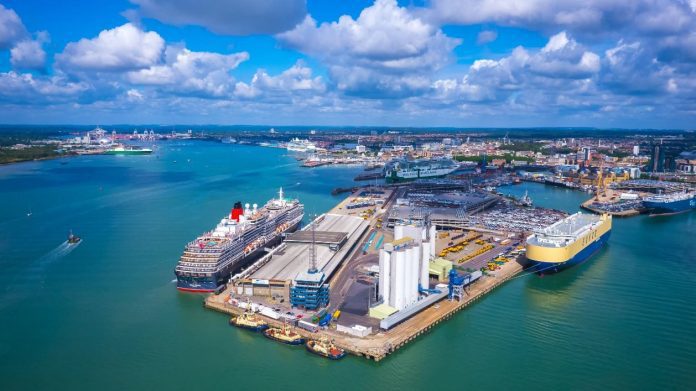Verizon has signed its first European private 5G contract, in a deal with Associated British Ports in the UK. The US firm has been appointed to deploy private 5G at the Port of Southampton. Nokia is providing the networking infrastructure, as part of the deal it struck with Verizon in October to supply enterprises with private 5G in Europe and Asia Pacific.
ABP has a shared access licence from Ofcom for band n77 at 3300–3800 MHz. Verizon Business said the deployment will be a “completely dedicated edge compute infrastructure”.
The Port of Southampton is responsible for £40 billion in exports per year; Verizon Business called it the UK’s “number one port for cars and cruise”, handling around 900,000 cars and millions of cruise passengers annually. It will be the first UK mainland port with a private 5G network. Associated British Ports (ABP) operates a network of 21 ports, including the Port of Southampton.
The new private 5G deployment will use Nokia’s Digital Automation Cloud (DAC) product, an as-a-service edge networking solution for on-premise private LTE and 5G. The DAC solution is geared towards quick-fire local-area deployments; by contrast, Nokia’s Modular Private Wireless (MPW) solution is for larger-scale campus-wide private cellular.
The ABP deal in Southampton is the first of its kind for Verizon Business, as it seeks to “take private 5G global”, as per the statement that attended announcement of its partnership with Nokia last October. It said in its latest announcement, about the ABP gig, its private 5G solution is “currently delivered in partnership with Nokia”.
The deployment will provide ABP with a “reliable and secure” private wireless data network across selected areas within the East and West Docks of the Port, said Verizon Business. It stated: “This will enable data communications to be consolidated onto a single network, reducing previous complexity as well as helping to improve the reliability and security of terminal communications.”
The statement continued: “The deployment will not only address the immediate problem of loss of onsite data communications as a result of poor Wi-Fi connectivity, but the advanced capabilities of private 5G – specifically its reliability, throughput, security, and ultra-low latency – can help enable the use of new technologies such as real-time analytics, IoT, and machine learning. This can help new service advancements including asset tracking, autonomous guided vehicles, workflow management, predictive maintenance and safety monitoring in the near future.”
Tami Erwin, chief executive at Verizon Business, commented: “Businesses… are coming under more pressure to evolve their services at tremendous speeds in order to take advantage of new commercial opportunities. We have been able to equip ABP to take advantage of the immediate benefits private 5G offers, and most importantly prepare the Port of Southampton to take full advantage of new technology applications and real-time analytics which will digitally transform its services in the future.”
Henrik Pedersen, chief executive at ABP, said: “Building flexible and resilient technology platforms to meet our customers’ needs is a key element of our strategy. Becoming the first mainland port operator in the UK to offer a private 5G network to our customers is a fantastic milestone for ABP. Our partners… will equip the port in Southampton with the state-of-the-art infrastructure needed to be at the forefront of the digital revolution in the maritime industry.”
Brian Fitzgerald, senior vice president of the Verizon business group at Nokia, said: “The 5G opportunity will be fully realized with Industry 4.0 as spectrum opens up and private 5G networks go into operation at industrial sites around the world. We are committed to enabling our Verizon to expand its 5G global footprint with enterprise customers such as ABP; by providing unprecedented levels of support to drive success for private 5G as well as delivering the highest levels of performance, resilience and security required by its customers.”
ABP handles 90 million tonnes of cargo and 1.5 million vehicles per year at UK ports across 5,000 hectares of port estate. It generates around one quarter of the UK’s rail freight. The 21 UK ports under its jurisdiction have 1.4 million square metres of covered storage and 1,000 hectares of open storage. It has said it will invest £1 billion over five years to “respond to the needs of customers [that] on our ports for access to international and, in some cases, domestic markets.”

